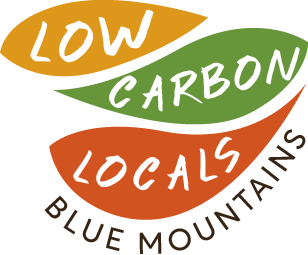Looking for a simple way to identify businesses that are leading the way in reducing their carbon footprint?
As part of the Low Carbon Living program, participating businesses in the Blue Mountains have been rated as either Gold, Silver or Bronze. This rating system takes into account positive actions that businesses have taken to reduce their greenhouse gas emissions from energy use, water consumption and waste management.
The ratings system is based on a points system out of 100:
Gold rating = 75 points
Silver rating = 50 points
Bronze rating = 25 points
Of the 100 possible points available:
- 70 are allocated to energy-related actions, such as upgrading to energy-efficient lightbulbs or installing solar panels
- 20 are assigned to waste management actions, such as composting and effective recycling
- 10 points are based on water use, such as the installation of low-flow showers and taps.
This breakdown is based on the relative contribution that energy, waste and water make to the carbon footprint of a typical tourism business in the region (i.e. energy use is typically the biggest contributor to a business’ carbon footprint, followed by waste and water).
Ratings for each business can be viewed on the Low Carbon Living Blue Mountains map or on each business’ profile page.
The table below provides more details on the scoring system used to assign ratings. Further details are provided in the Low Carbon Tourism Guide to Ratings (PDF file).
Ratings scorecard
|
Category |
Sub-category |
Maximum Score |
How the score is calculated |
|---|---|---|---|
|
Energy |
Efficient lighting |
20 |
Based on the proportion of lighting that is efficient (i.e. CFLs, LEDs, T5s/T8s battens). 2 points are awarded for every 15% of light fixtures that are efficient up to 75%, then beyond that 2 points are awarded for every additional 5% of fixtures that are efficient (i.e. 75-80%=12 points, 80-85%=14, 85-90%=16, 90-95%=18, 95-100%=20) |
|
Energy |
Heating and cooling |
40 |
10 points awarded for heating source (e.g. electricity = 0, gas = 5, no heating = 10) 10 points for heating technology (e.g. electric resistance heaters = 0, gas central heating = 7, no heating = 10) 10 points for cooling technology (e.g. A/C = 0, floor fans = 4, ceiling fans = 6, natural ventilation = 10) 10 points for thermal performance (including insulation, curtains/pelmets, double-glazing, zoning) |
|
Energy |
Appliances |
10 |
To what extent has the business attempted to employ the most efficient options for its major energy-using appliances? |
|
Energy bonus |
Renewable energy bonus |
70 |
7 bonus points awarded for every 10% of a business’ energy that is sourced from renewable sources (e.g. solar panels, GreenPower). These bonus points are added to the other energy-related points up to a maximum of 70 points for the overall energy score. |
|
Water |
Efficient water use |
10 |
Based on the proportion of water fixtures that are efficient (e.g. taps <4.5 L/min, showerheads <9 L/min, toilets <4.5 L/flush or with dual flush). 1 point is awarded for every 15% of water fixtures that are efficient up to 75%, then beyond that 1 point is awarded for every additional 5% of fixtures that are efficient (i.e. 75-80%=6 points, 80-85%=7, 85-90%=8, 90-95%=9, 95-100%=10). |
|
Water bonus |
Alternative water source bonus |
10 |
1 bonus point awarded for every 10% of a business’ water that is sourced from an alternative sustainable source (e.g. rainwater tanks, greywater, on-site dam). These bonus points are added to the other water-related points up to a maximum of 10 points for the overall water score. |
|
Waste |
Composting and recycling |
10 |
5 points awarded based on whether composting (or wormfarming) is practiced and the standard of the management practices employed. 5 points awarded based on whether recycling of paper and cardboard is practiced and the standard of the management practices employed. |
|
Waste |
Relative waste emissions |
10 |
Based on a business’ waste-related emissions relative to others in the same category on a per-customer basis (accommodation, restaurants/cafes, activities and transport). For example, if they have the median emissions within their category they score 5, if their emissions are less than 10% of the median they score 10 points, if their emissions are ten times the median they score 0 points. |
|
TOTAL |
100 |
70 for energy, 10 for water, 20 for waste |
|
